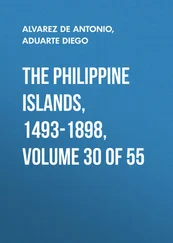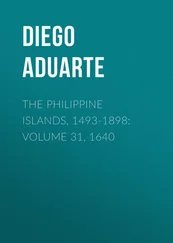John Bowring - A Visit to the Philippine Islands
Здесь есть возможность читать онлайн «John Bowring - A Visit to the Philippine Islands» — ознакомительный отрывок электронной книги совершенно бесплатно, а после прочтения отрывка купить полную версию. В некоторых случаях можно слушать аудио, скачать через торрент в формате fb2 и присутствует краткое содержание. Жанр: foreign_antique, foreign_prose, на английском языке. Описание произведения, (предисловие) а так же отзывы посетителей доступны на портале библиотеки ЛибКат.
- Название:A Visit to the Philippine Islands
- Автор:
- Жанр:
- Год:неизвестен
- ISBN:нет данных
- Рейтинг книги:3 / 5. Голосов: 1
-
Избранное:Добавить в избранное
- Отзывы:
-
Ваша оценка:
- 60
- 1
- 2
- 3
- 4
- 5
A Visit to the Philippine Islands: краткое содержание, описание и аннотация
Предлагаем к чтению аннотацию, описание, краткое содержание или предисловие (зависит от того, что написал сам автор книги «A Visit to the Philippine Islands»). Если вы не нашли необходимую информацию о книге — напишите в комментариях, мы постараемся отыскать её.
A Visit to the Philippine Islands — читать онлайн ознакомительный отрывок
Ниже представлен текст книги, разбитый по страницам. Система сохранения места последней прочитанной страницы, позволяет с удобством читать онлайн бесплатно книгу «A Visit to the Philippine Islands», без необходимости каждый раз заново искать на чём Вы остановились. Поставьте закладку, и сможете в любой момент перейти на страницу, на которой закончили чтение.
Интервал:
Закладка:
The comparatively small number of Spanish settlers in the Philippines would not allow them, even if such had been their purpose, which it does not appear to have been, unnecessarily to interfere with the usages of the Indians, or their forms of administration and government, except in so far as their conversion to Christianity compelled the observance of the Christian rites; and the friars willingly accommodated their action to the social habits of the people, respecting, as to this hour are respected, most of the patriarchal forms of administration and government which had existed among them from immemorial time.
There have been speculations – and M. Mallat is among the sanguine anticipators of such an advent – that in process of time the Philippines may become the dominant political power of the Eastern world, subjecting to its paramount influence the Netherlands Archipelago, the Pacific, Australia, and even China and Japan, and that Manila is destined to be the great emporium for the eastern and south-eastern world. M. Mallat even goes further, and says: “Manila might easily become the centre of the exports and imports of the entire globe.” It must be contented with a less brilliant futurity. Certainly its commercial relations might be greatly extended, and the Spanish archipelago be much elevated in value and in influence; but in the vast development of commercial relations in the Oriental world, the Philippines must be contented with a moderate though a considerable share of benefit, even under the best administration and the adoption of the wisest policy.
Tropical regions fail to attract permanent settlers from the West. The foreign merchant comes to realize what he deems an adequate fortune, and to withdraw; the superior public functionary is among, or above, but never of, the people. What must be looked to is the popular element. Of what are the millions composed, and how can the millions be turned to account? There is no reason to apprehend that these millions will aspire to political power or sovereignty. Their pristine habits would permit of no general organization. The various races and clans would never unite in a national object, or recognize one native chief. All that is found of order and government among them is local; except through and for their masters, the different islands have little or no intercourse with one another. The Tagál and the Bisayan have no common sympathies. Dissatisfaction might produce disorder, which, if not controlled, would lead to anarchy, but not to good government.
The Philippines are free from the curse of slavery. Time will settle the controversy as to whether the labour of the freeman can, in the long run, be brought into competition with that of the slave, especially in the tropics; but that the great tide of tendency flows towards the abolition of slavery, that civilizing opinion and enlightened Christian legislation must sweep the ignominy away, is a conviction which possesses the minds of all who see “progress” in the world.
As it is, the Philippines have made, and continue to make, large contributions to the mother country, generally in excess of the stipulated amount which is called the situado . Spain, in her extreme embarrassment, has frequently called on the Philippines to come to her aid, and it is to the credit of the successive governors-general that, whatever may have been the financial disorders at home, the dependants upon the Manila treasury have had little motive for complaint, and while the Peninsula was engaged in perilous struggles for her independence, and even her existence as a nation, the public tranquillity of her island colonies was, on the whole, satisfactorily maintained, and interruptions to the ordinary march of affairs of short endurance.
There would seem to be no legislation defining the powers of the viceroy, or captain-general; but whenever any important matter is under discussion, it is found that reference must be made to Madrid, and that the supreme rule of this vast archipelago is in the leading strings of the Spanish Cabinet, impotent to correct any great abuses, or to introduce any important reforms. The captain-general should be invested with a large amount of power, subject, of course, to a personal responsibility as to its becoming exercise. As he must, if properly selected, know more, being present, than strangers who are absent, his government should be trusted on account of that superior knowledge. Well does the Castilian proverb say, “Mas sabe el loco en su casa que el cuerdo en la agena” – “The fool knows more about his own house than the sage about the house of another.” He should be liberally paid, that the motives for corruption be diminished. He should be surrounded by a council composed of the best qualified advisers. Many objects would necessarily occupy the attention of such a body, and it would naturally have to create becoming local machinery and to furnish the materials for improved administration, such as surveys and statistics of the land and population, which would lead to a more satisfactory distribution of provinces, districts and pueblos. A simple code of civil and criminal law would be a great blessing, and should be grounded, in so far as the real interests of justice will allow, upon the customs and habits of the people, while employing, when compatible with those interests, the administrative local machinery in use among the natives.
Nothing would be more beneficial to the interests of Manila than the establishment of an efficient board of works, with provincial ramifications, to whose attention the facilitating communications should be specially recommended. The cost and difficulty of transport are among the principal impediments to the development of the resources of the islands, and the tardy progress of the few works which are undertaken is discouraging to those who suggest, and disappointing to those who expect to benefit by them. In many of the provinces the bridges are in miserable condition, and the roads frequently impassable. Even in the populous island of Panay delays the most costly and annoying interfere with the transport of produce to the capital and naturally impede the development of commerce. There is, no doubt, a great want of directing talent and of that special knowledge which modern science is able to furnish. The construction of bridges being generally left to the rude artists who are employed by the Spanish functionaries, or to the direction of the friars, with whom the stare super antiquas vias is the generally received maxim, it is not wonderful that there should be so many examples of rude, unsafe and unsightly constructions. Moreover, estimates have to be sent to the capital of all the proposed outlay, and it is hardly to be expected but that sad evidence should be found – as elsewhere – of short-sighted and very costly economy. The expense, too, almost invariably exceeds the estimates – a pretty general scandal; then the work is arrested, and sometimes wholly abandoned. Funds there are none, and neither policy nor patriotism will provide them. Even when strongly impelled, the Indian moves slowly; self-action for the promotion of the public good he has none. There is no pressure from without to force improvements upon the authorities, and hence little is to be hoped for as to improvement except from direct administrative action.
I can hardly pass over unnoticed M. de la Gironière’s romantic book, 9as it was the subject of frequent conversations in the Philippines. No doubt he has dwelt there twenty years; but in the experience of those who have lived there more than twice twenty I found little confirmation of the strange stories which are crowded into his strange volume. He was a resident of the Philippines at the time of my visit, and I believe still lives on the property of which he was formerly – but I was told is no longer – the possessor. 10I did not visit his “Paradise,” but had some agreeable intercourse with a French gentleman who is now in charge. I did not find any of that extraordinary savagery with which M. de la Gironière represents himself to be surrounded; and the answer to the inquiries I made of the neighbouring authorities as to the correctness of his pictures of Indian character was generally a shrug and a smile and a reference to my own experience. But M. de la Gironière may have aspired to the honour of a Bernardin de St. Pierre or a Defoe, and have thought a few fanciful and tragic decorations would add to the interest of his personal drama. “All the world’s a stage,” and as a player thereon M. de la Gironière perhaps felt himself authorized in the indulgence of some latitude of description, especially when his chosen “stage” was one meant to exhibit the wonders of travel.
Читать дальшеИнтервал:
Закладка:
Похожие книги на «A Visit to the Philippine Islands»
Представляем Вашему вниманию похожие книги на «A Visit to the Philippine Islands» списком для выбора. Мы отобрали схожую по названию и смыслу литературу в надежде предоставить читателям больше вариантов отыскать новые, интересные, ещё непрочитанные произведения.
Обсуждение, отзывы о книге «A Visit to the Philippine Islands» и просто собственные мнения читателей. Оставьте ваши комментарии, напишите, что Вы думаете о произведении, его смысле или главных героях. Укажите что конкретно понравилось, а что нет, и почему Вы так считаете.












